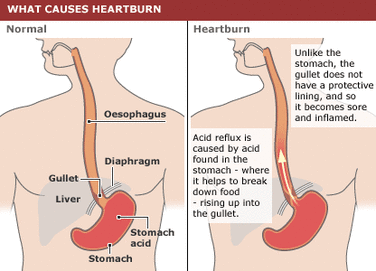Indigestion and Heartburn
Indigestion and heart burn are experienced differently by different people. Usually there is discomfort in the upper central abdomen, often associated with a burning sensation behind the breast bone, and sometimes acid reflux into the back of the throat. It is usually worse at night.
It is important that your oncologist knows of any prior history of conditions that may make this problem worse, including hiatus hernia, oesophageal reflux and peptic ulcer disease. You should particularly notify any previous endoscopic examinations of the stomach or any previous treatment for ulcers.
Indigestion is often made worse during chemotherapy. The main culprit is probably the dexamethasone that is used as an anti-nausea drug. It tends to increase acid production from the stomach.
The problem is usually easily overcome by the use of drugs that reduce gastric acid, such as Zantac or Somac. These should only be used on prescription from your GP or oncologist.
It is important that your oncologist knows of any prior history of conditions that may make this problem worse, including hiatus hernia, oesophageal reflux and peptic ulcer disease. You should particularly notify any previous endoscopic examinations of the stomach or any previous treatment for ulcers.
Indigestion is often made worse during chemotherapy. The main culprit is probably the dexamethasone that is used as an anti-nausea drug. It tends to increase acid production from the stomach.
The problem is usually easily overcome by the use of drugs that reduce gastric acid, such as Zantac or Somac. These should only be used on prescription from your GP or oncologist.
